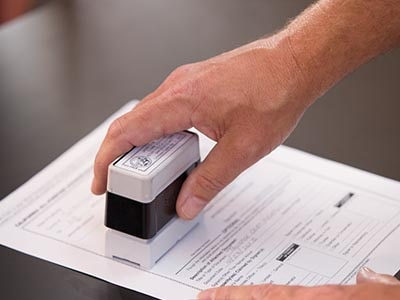Apostille Refine Explained: Enhancing Worldwide Paper Confirmation
Apostille Refine Explained: Enhancing Worldwide Paper Confirmation
Blog Article
Debunking Notarial Job: Simplifying the Function and Relevance of Notaries
Their duty, usually shrouded in enigma for lots of, brings considerable weight in guaranteeing the validity and integrity of crucial documents. By unraveling the intricacies losing and bordering notarial methods light on the importance of their acts, a more clear understanding emerges of the vital duty notaries play in promoting the material of contractual and lawful contracts.
The History of Notarial Work
The background of notarial work dates back to old civilizations, where scribes played a vital duty in tape-recording vital information and validating records. This led to the development of notaries, individuals selected by the state to act as neutral witnesses in legal matters.
During the Center Ages, notaries obtained prominence in Europe, with their functions broadening to consist of drafting legal papers, licensing signatures, and maintaining records. The surge of international trade even more stressed the relevance of notarial work in confirming contracts and contracts throughout boundaries.
In the modern-day period, notaries remain to play a vital role in legal and business transactions by verifying identities, confirming the authenticity of files, and preventing fraud. Their role in certifying the validity of agreements includes a layer of security and count on to the ever-evolving landscape of commerce and law.

Responsibilities and Responsibilities of Notaries
The historical advancement of notarial work from ancient human beings to the contemporary era has actually shaped the unique responsibilities and duties that notaries maintain in legal and business deals today. Notaries play an important duty in confirming the authenticity of papers and the identity of signatures. Among their main obligations is to witness the signing of vital papers, such as deeds, wills, and contracts, to make sure that all parties are participating in arrangements knowingly and voluntarily. Notaries also verify that signatures are of sound mind and not under discomfort or coercion.
In addition, notaries are tasked with providing vows and affirmations, which are important in lawful process and the implementation of affidavits. They accredit copies of initial records, giving guarantee to establishments that the copies hold true replicas of the originals. Notaries must preserve accurate records of all deals they oversee to guarantee transparency and liability. On the whole, the obligations and responsibilities of notaries are important in safeguarding the honesty and legitimacy of different documents and transactions.
Notarial Certificates and Signatures
Exemplifying meticulous interest to detail, notarial certifications and trademarks serve as necessary components in verifying the credibility of lawful files. Notarial certifications commonly contain crucial details such as the day of notarization, the names of the notaries, a description of the record, and the notary's main seal. These certificates offer a clear document of the notarial act, making sure that the paper can be quickly identified and mapped back to the notary that supervised the process.
Trademarks play a critical role in notarial work, as they signify the agreement and authorization of the celebrations entailed. Notaries very carefully witness the signing of documents to validate the identity of the notaries and verify that they are signing of their very own free choice. By attaching their main seal and trademark to the file, notaries certify that the needed procedures have been complied with which the file is enforceable and valid.
Essentially, notarial certificates and signatures are the characteristic of credibility in legal transactions, providing assurance to all parties entailed that the files are genuine and binding.
Relevance of Notarial Acts

Registration Refine Explained
The registration process typically starts with the specific providing the document to a notary public. As soon as the identification is validated, the notary makes certain that the individual signing the paper does so willingly and without any kind of browbeating.

Conclusion
Notarial certifications normally have vital information such as the date of registration, the names of the signatories, a summary of the paper, and the notary's official seal. These certifications give a clear record of the notarial act, guaranteeing that the document can be easily determined and traced back to the notary that managed the procedure.
By fastening their official seal and trademark to the document, notaries certify that the essential treatments have been adhered to and that the record is legitimate and enforceable.
By confirming the identification of the notaries, verifying their determination to enter into the agreement, and certifying the date and location of the signing, notaries play a critical role in promoting the legitimacy of legal papers.After the record is signed, the notary will certainly fasten their main seal or stamp onto the paper.
Report this page